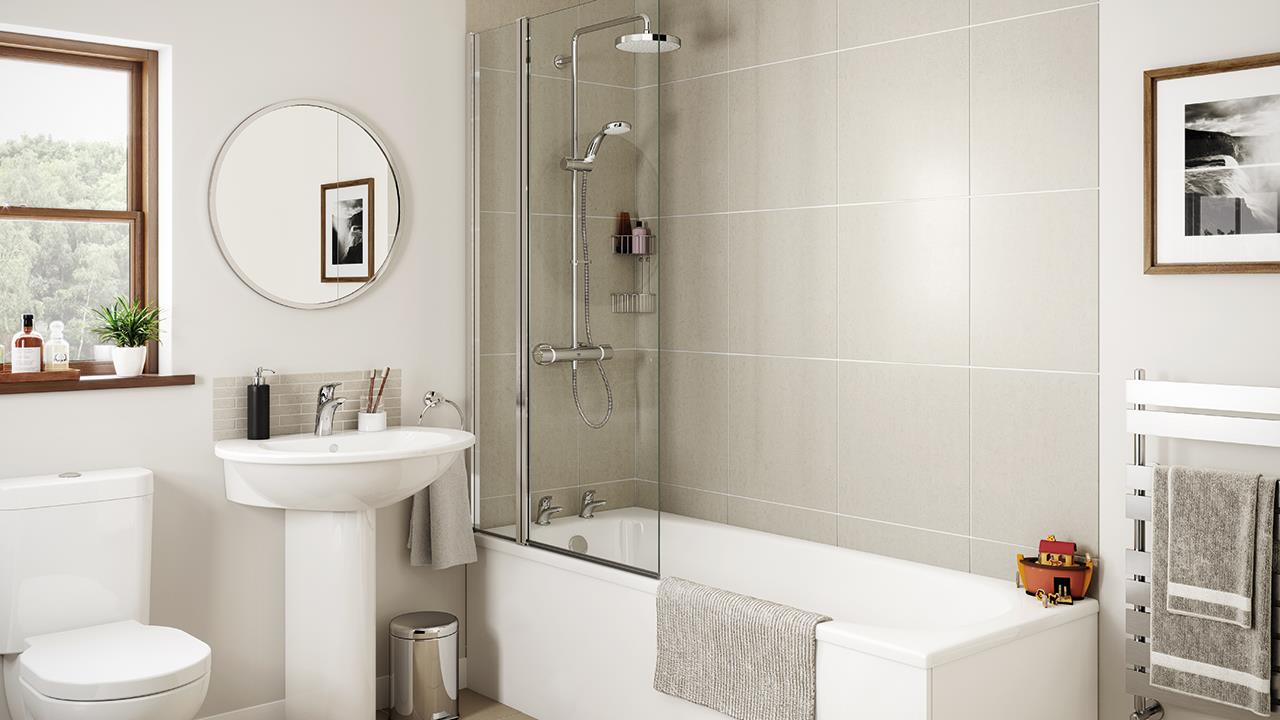

Paul McGuire, Associate Channel Manager at Mira Showers, looks at the growing interest in sustainable showering and the importance of specifying products correctly/
Sustainability and minimising the impact on the environment are fast becoming the most influential factors for customers and installers when assessing and deciding upon the systems they are choosing to be installed.
Renewable heating technologies, which enable consumers to save money on their utility bills, are now more affordable than ever. In addition, even more installers are being trained on this technology, expanding their knowledge, and are therefore in a better position to offer this to customers. All of this means that these renewable heating technologies are becoming more frequent and more familiar.
In turn, the growing interest in this technology is leading to an increase in queries to check the suitability of the products and systems, and these enquiries are from both the installer and the customer. There are a vast range of products that can be used alongside renewable heating technology, but it is essential for the installer to specify these correctly.
We have found that the largest concern when ensuring system compatibility is when system upgrades are undertaken long after the original installation of the shower and/or bathroom.
When it comes to specifying products, it’s important to make sure that the shower is suitable for the system pressures that it’s being installed to. Here are some useful tips to remember.
Mixer showers
It’s important to make sure that the shower is suitable for high and low pressure systems. However, installing mixer showers doesn’t need to be a worry, as many are compatible with both pressure systems. They will work down to a minimum maintained/working pressure of 0.1bar, but they will also work all the way up to 5bar maintained/working pressure, making them suitable for all conventional and/or renewable high pressure systems.
With a maximum static/standing pressure of 10bar, Mira mixer showers are capable of withstanding the typical static/standing pressures normally seen on mains supplies.
Digital showers
When specifying for renewable systems, the pressure of the digital showers needs to be taken into account. Our high pressure digital showers, for instance, are more than capable of withstanding the typical static/standing pressures normally seen on mains supplies.
However, low pressure digital showers are commonly unsuitable for high pressure renewable systems, as they are designed specifically for low pressure gravity-fed systems in older housing stock. Because of this, installers need to recommend a high pressure range of digital showers instead.
Min and MAX
In addition to system pressures, the minimum and maximum water supply temperatures should also be checked to ensure product compatibility. Information about installation best practice was less widely available for renewables when they first emerged, meaning it is not uncommon to find renewable technologies which have been installed without adequate controls, or where the controls haven’t been configured correctly.
As an example, the maximum hot supply to all Mira mixer, power, and digital showers should be approximately 55-65°C. However, where this is significantly exceeded, commissioning any shower can prove problematic, leading to repeated digital thermal shutdown on digital showers to protect the user, or them struggling to commission a suitably cool enough maximum temperature on conventional thermostatic mixer showers.
For the shower to work correctly for thermal stores, a separate in-line tempering valve may be needed to decrease the temperature of the hot water supply down to the correct 55-65°C temperature range.
Not only do these temperatures need to be adhered to, ensuring the shower works correctly and efficiently, but temperatures significantly over 65°C can cause permanent damage to the thermostatic mixing valve, resulting in the thermostatic mixing cartridge needing to be replaced.
Whenever in doubt, consult manufacturers’ technical support teams or customer service for advice.
If you'd like to keep up-to-date with the latest developments in the heating and plumbing industry, why not subscribe to our weekly newsletters? Just click the button below and you can ensure all the latest industry news and new product information lands in your inbox every week.